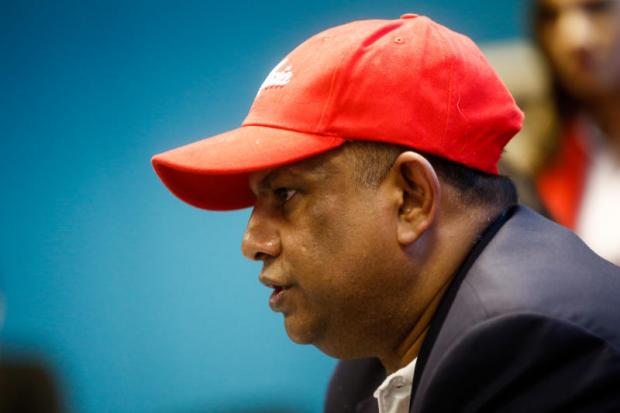
AirAsia group chief executive Tony Fernandes is calling on Thai authorities to privatise airports as a way to tackle funding and development issues.
"I encourage the government to privatise airports to allow new money to come in so these facilities can be developed faster," he told the Bangkok Post during an interview in Sepang, Malaysia.
He branded airport deficiency one of the major bottlenecks to expanding Thailand's aviation industry, particularly in handling fast-growing air traffic spurred by mass tourism.
"Don Mueang is almost full, Phuket needs a new airport and Krabi is getting full soon," Mr Fernandes said.
The development of secondary and tertiary airports in Thailand also requires prompt attention, said the head of Asia's biggest low-cost carrier in terms of passengers carried.
Mr Fernandes has made clear the role that the airline group is playing as part of his advocacy for privatising Thai airports.
AirAsia recently began lobbying Thai cabinet ministers to expedite airport plans, warning of how airport deficiencies are impeding air traffic growth.
"AirAsia is not really an airport operator, but we will give airport operators confidence that our planes will be coming to their facilities [when they are ready]," Mr Fernandes said. "As an airline, we will not get involved [in running the airports], but maybe we can put in a little bit of equity to show our commitment."
Asked about the size of the equity that AirAsia would like to put in, Mr Fernandes would say only: "We have to see."
But he said AirAsia can introduce a lot of investors to help develop Thai airports, which are almost entirely state-run.
AirAsia executives noted that the airline group's airport agenda is primarily driven by its network expansion strategy to capture the traffic potential that several existing ports of call and untapped destinations have to offer.
Tassapon Bijleved, chief executive of Thai AirAsia, has pointed out that some airports in Thailand are too small, some left unused and some provinces with good tourism potential are without airports.
"The Thai tourism industry has significant growth potential in many areas but is bogged down by weak transportation to distribute tourists to those areas," he said earlier.
The provinces facing such a situation include Nan, Phrae, Lampang, Phayao, Mae Hong Son, Tak and Loei.
"The irony is that there have been plans to promote tourism in those secondary destinations, but there is no good airport infrastructure to support the drive," Mr Tassapon said.
He said AirAsia group stands ready to support the development of these secondary and tertiary airports in "whatever forms" dictated by authorities.
"What we essentially need to see is to have this airport development get started today, otherwise the country will miss the opportunities in tourism," Mr Tassapon said.